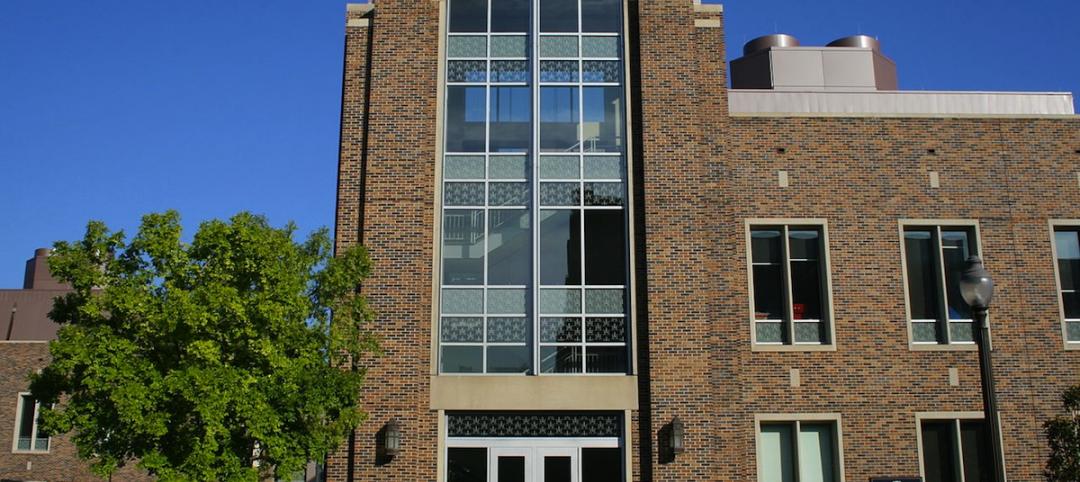Cornell Tech, under construction on Roosevelt Island in New York City, recently announced details of its plan to achieve Net Zero energy efficiency for The Bloomberg Center.
Designed by the architecture firm Morphosis, The Bloomberg Center is the first academic building to be constructed on the Cornell Tech campus. The first phase of this development will open this September.
The campus plans include photovoltaic arrays, geothermal ground source heat pumps, an energy-efficient facade balancing the ratio between transparency and opaqueness to maximize building insulation and decrease energy demand, and smart building features that will monitor lighting and plug load use. The strategy to achieve a low energy building is through a stepped approach, prioritizing reduction in energy demand through load reductions and maximizing passive and energy efficient design, as well as using renewable energy to power the building systems.
There are 80 closed-loop geothermal wells, each 400 feet deep, that were drilled below the main campus public open space. The ground-source heat pumps will be used with an active chilled-beam system.
An acre-sized photovoltaic array tops The Bloomberg Center and neighboring The Bridge building. The building designs incorporate the panels as an integral architectural feature. The array on The Bloomberg Center also provides building shading.
Related Stories
Codes and Standards | Jul 16, 2015
Oregon to spend $300 million for seismic updates on public buildings
A survey found that more than 1,000 Oregon school buildings face a high risk of collapse during earthquakes.
Smart Buildings | Jul 12, 2015
Office of Management and Budget asks agencies to consider climate change when budgeting for construction projects
For the first time, the U.S. Office of Management and Budget is asking agencies to submit budget plans that consider the effects of climate change on construction and maintenance of federal facilities.
Engineers | Jul 12, 2015
White paper explores low-flow toilets’ impact on drain lines, clogs
The research found that certain variables: toilet paper—along with the pipe slope and flush volume—are key variables in determining whether drain lines might be predisposed to clog.
Contractors | Jul 9, 2015
Opioid abuse blamed for increase in worker injuries, business losses
Insurance giant CNA says concerns are increasing in the construction industry.
Codes and Standards | Jul 8, 2015
California Supreme Court upholds affordable housing requirements
Court cites affordable housing crisis of ‘epic proportions.’
Codes and Standards | Jul 6, 2015
First valuation advisory for green and high performance property adopted
The document provides voluntary guidance to appraisers on the background and competency necessary to credibly value green buildings.
Codes and Standards | Jun 24, 2015
Maryland’s Prince George County turns to P3s to build green infrastructure
Over the next 10 years, the county must convert 15,000 acres of watertight surfaces—almost 5% of the county's total area—into surfaces that absorb or treat rainwater.
Codes and Standards | Jun 24, 2015
Philadelphia considers more incentives for green building
Developers could be allowed additional height, floor area on projects that meet benchmarks.
Codes and Standards | Jun 24, 2015
LEED building at Duke University may be retrofitted to prevent bird deaths
More birds die from colliding with buildings at Duke than on any other campus in a 45-school survey conducted by Augustana College. Duke is located along the Atlantic Flyway, a bird migration route.
Codes and Standards | Jun 24, 2015
Balcony collapse in Berkeley, Calif., prompts an examination of codes
Dry rot and too much weight appear to be the causes of a fatal accident at an eight-year-old building in Berkeley, Calif.
















